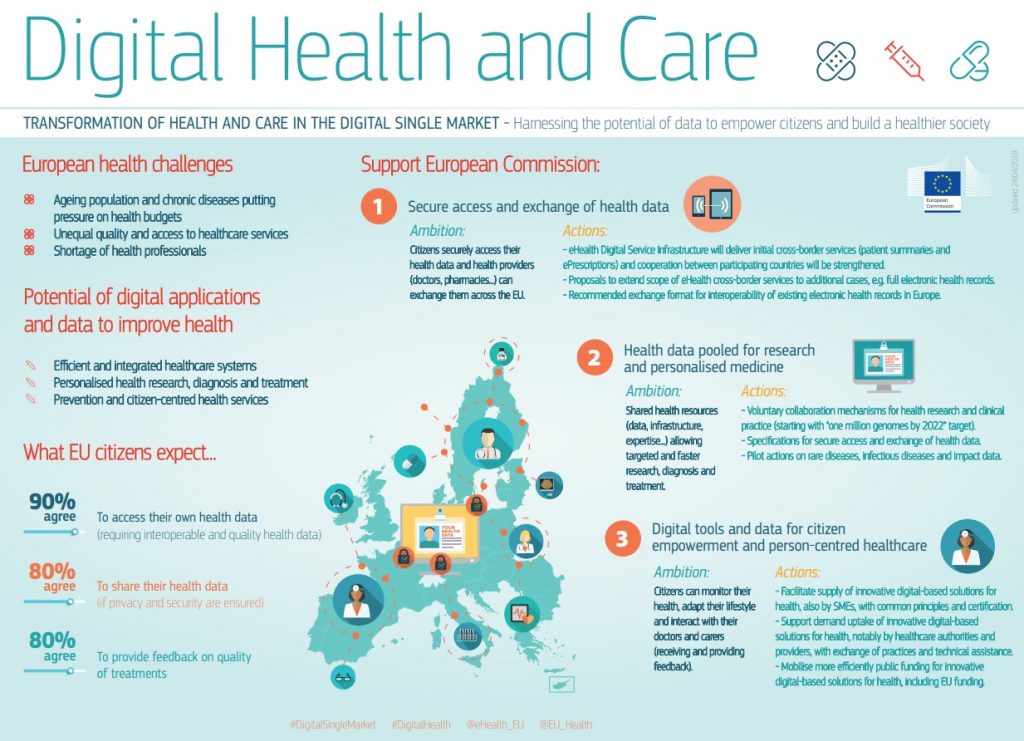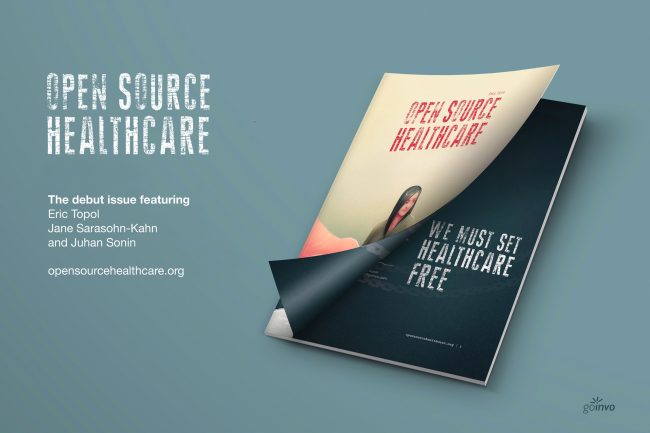Information is power in the hands of people. When it’s open in the sunshine, it empowers people — whether doctors, patients, researchers, Presidents, teachers, students, Everyday People.
Welcome to the era of Open Source Healthcare, not only the “about time” for patients to own their health, but for the launch of a new publication that will support and continue to evolve the concept.
It’s really a movement that’s already in process.

Let’s go back to some definitions and healthcare basics to understand just why Open Source Healthcare is already a thing.
When information access is uneven, it’s considered “asymmetric.” That’s when one party in a relationship holds information that the corresponding person doesn’t have. Then, there’s an imbalance of power, where the first party can exploit the second for money, time, or any number of assets or resources.
When computer systems are closed or siloed, when data aren’t transparent, or when people can’t access the information they need in real time, then those folks can’t make fully informed, rational decisions.
In health and healthcare, that’s tantamount to keeping medicine from sick people — because in today’s data-fueled environment, information is power in the hands of people, patients, consumers, and caregivers.
The phrase “open source” was originally used in describing software whose source code was made available for use or modification as users and developers saw fit. That software was often developed as a public collaboration, made freely available to people.

There are several key concepts baked into that defintion of open source:
- Code made freely available to developers and users
- Public collaboration
- Modifications allowed, ongoing.
“We need to put a fine point on a mission critical part of our healthcare system that is dominated by closed services, limited access, lack of transparency into prices, and no data ownership which impacts all of our health,” Juhan Sonin said in the press release announcing the launch. Sonin is the founder of Open Source Healthcare and leads GoInvo, a leading global healthcare design firm. GoInvo has developed and collaborated on open healthcare solutions for some of the world’s most innovative healthcare companies, public sector projects, and start-up developers.
Dr. Eric Topol, a physician committed to patients’ rights, digital health innovation, and evidence-based medicine is part of the inaugural issue of the Journal. So am I, and I’m absolutely thrilled and grateful to be part of this collaborative effort. I hope that you will click into the publication to learn more about our joint healthcare mission and vision. Here’s where you can do just that beginning on 8th November 2018 at Open Source Healthcare.
Health Populi’s Hot Points: As I learned about the launch of Open Source Healthcare this week, I’m in Europe on a sort of EU and UK health care tour with clients and colleagues, brainstorming what European health care can learn from the U.S., and what American healthcare can glean from the better outcomes and lower medical spending that Europeans enjoy.
With fewer Euros and pounds expended, Europeans do indeed live relatively longer lives than Americans do, bolstered by greater spending on the social determinants of health.

EU research also finds that 80% of Europeans would share their health data. The map shows this statistic, along with a more detailed health profile of healthcare in the EU.
This research among Europeans was published by the EU in a statement on enabling the digital transformation of health and care in the so-called digital single market — “empowering citizens and building a healthier society.”
In my essay included in the first Open Source Healthcare Journal, I discuss the concept of being a health citizen: the promise of Americans owning our health and healthcare system, controlling our health data, and being the central “noun” in our respective nations’ healthcare systems.
Europeans are health citizens; Americans aren’t…yet. Adopting Open Source Healthcare will underpin Americans’ health citizenship through greater transparency, consumer control of their personal health information, and user/patient-centered design for health and wellbeing.
If Europeans can “build a healthier society,” why shouldn’t Americans do the same? I continue to work toward this objective, and believe with my friends Juhan and Eric, and dozens of other collaborators with the same Open Source mindset for health, we will get there.





 I'm gobsmackingly happy to see my research cited in a new, landmark book from the National Academy of Medicine on
I'm gobsmackingly happy to see my research cited in a new, landmark book from the National Academy of Medicine on 
 Grateful to Gregg Malkary for inviting me to join his podcast
Grateful to Gregg Malkary for inviting me to join his podcast